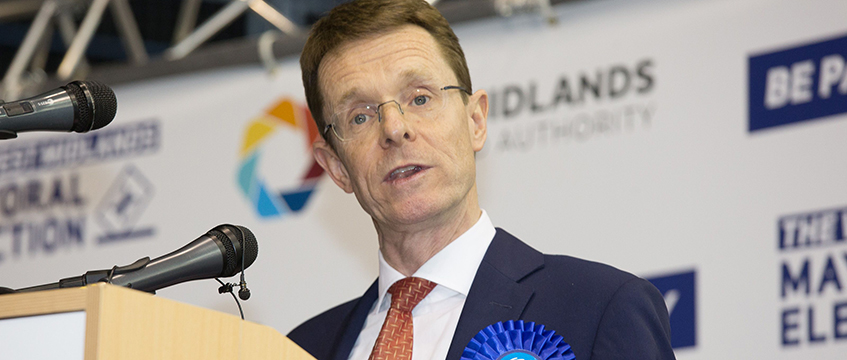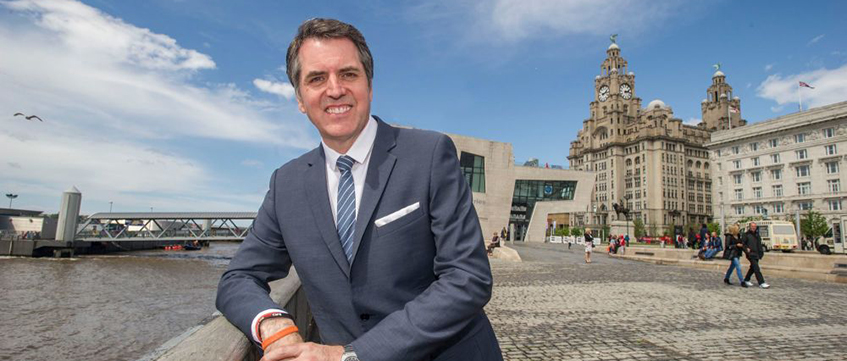From Brexit to Devo Max in Scotland and Devo Manc in the north west, UK politics has been dominated by devolution debates in recent years.
It has turned at least one political convention on its head, as politicians have shown a surprising willingness to change: they are no longer decentralisers only in opposition and centrists once they assume office.
In the last two years real power has been transferred from Whitehall and Westminster to local government. Not enough, many local politicians would argue, but the shift has been meaningful nonetheless.
Nowhere has this been more visible than in the creation of metro mayors. In May six were elected covering Cambridgeshire and Peterborough, Greater Manchester, Liverpool City Region, Tees Valley, West Midlands and the West of England.
This new breed of regional politician is responsible for setting out a strategy for growing their city region’s economy, and each has some powers over housing, transport and skills.
Five months in, it’s too early to hold the mayors to account on their campaign pledges. That time will come. And accountability was a key motivation for ministers as they created the structure.
On housing for instance, ministers and civil servants recognised that a national crisis would not be solved by the centre. Yet they would only consent to devolution if they had an individual to hold to account. That’s where the metro mayors came in.
It was also made possible by Manchester. The strong working relationship struck up by then-city council chief executive Sir Howard Bernstein and then-chancellor George Osborne showed trust, effectiveness and partnership could trump party politics.
Theresa May’s government has appeared less committed to some of the devolved structures launched by Osborne and former prime minister David Cameron, but ministers appear now to be putting their energy behind them.
The Northern Powerhouse has been plugged back in.
As the Conservative metro mayor of the West Midlands, former John Lewis chief executive Andy Street has forged perhaps the best relationship with government.
Birmingham is his flagship city; its importance to the national economy, the opportunities created by high levels of infrastructure investment and the fact that it has punched below its weight in recent times has thrust it into the spotlight.
Street’s personal track record as an effective business leader is also helping, and may give him a head start in the race to tempt Channel 4 away from its London base, should the government fire the starting gun.
Where will Channel 4 move? Click here to look at the leading contenders
But the devolution drive isn’t about creating opportunities in one or two cities. It needs to support the transformation of six, growing to seven next year when Sheffield is expected to elect a metro mayor, and more in the years ahead.
This government began life looking like something of a reluctant convert to the devolution cause. That appears to be changing for the better. It must. Billions of pounds of investment – and all the opportunities that will create around housing, transport and skills that will create – are at stake.
THE METRO MAYORS

Cambridgeshire and Peterborough: James Palmer – Conservative
James Palmer has powers over the entire combined authority area, including control over a 30-year investment fund of £600m for education and skills, housing and planning, transport and health and social care.
As well as commitments to education, such as supporting the establishment of a university in Peterborough and facilitating collaboration between schools and businesses, Palmer has a pro-development stance. His manifesto pledges to make the planning system more open, tackle delays and coordinate public spending on infrastructure.
He has control over a £170m affordable housing grant and has also committed £100m to the rail link between Oxford and Bedford, £10m on the rail link between Cambridge and Bedford and £27m on an Expressway connecting Cambridge and Oxford.

West Midlands, Andy Street – Conservative
The former John Lewis boss and chair of the Greater Birmingham and Solihull LEP is no stranger to the needs of business, but may have more trouble coordinating the seven regions that make up the West Midlands Combined Authority.
The 53-year old will be a key figurehead for lobbying central government and selling the West Midlands on the international stage. But his direct powers are limited.
For housing, he will still need to work with authorities around public land release, though he has been handed compulsory purchase order powers. In terms of funds, the £1.1bn investment fund handed down from government is to last 30 years, equating to £36m a year.
As figurehead and coordinator, especially for HS2-related investment, he will be filling an essential role. As a Tory mayor chairing a cabinet of Labour local authority leaders, he could have his work cut out for him.
Image © Dave Warren/LNP/REX/Shutterstock

West of England, Tim Bowles – Conservative
Tim Bowles is a business development manager in the events industry and was a councillor for South Gloucestershire.
The Winterbourne resident will preside over a £1bn budget, drip fed over 30 years for transport, housing, planning and education for the Greater Bristol region, incorporating Bristol, Bath & North East Somerset and South Gloucestershire councils.
He has said his business experience will help to provide a skilled workforce for local businesses and pledged to “adopt a better development approach” towards housing, protecting green spaces and prioritising urban regeneration.
He has also committed to improving both digital and transport infrastructure by increasing services and building new stations.

Greater Manchester, Andy Burnham – Labour
An experienced Labour MP, Andy Burnham oversees the largest region, with a population of around 2.8m. He controls a £900m, 30-year investment fund and a £30m a year housing investment fund.
He has his own grand plans for the North of England and has made it clear he wants greater powers on everything from transport to a say over Brexit.
Burnham to address EG’s Manchester Question Time
His vision for a Council of the North – a forum for political leaders to bring investment, jobs and growth back to the North, was agreed at the Northern Transport Summit in August.
Burnham has already weighed in to the region’s housing and development plans, appointing Salford City Mayor Paul Dennett to “radically rewrite” the draft plan for the Greater Manchester Spatial Framework – the region’s development strategy for the next 20 years, with a focus on less green belt development and new housing “in the right places” and town centre regeneration.
Image © Joel Goodman/LNP/REX/Shutterstock

Tees Valley, Ben Houchen – Conservative
Ben Houchen has control over the whole Tees Valley combined authority area and is working with existing city leaders to create a strategic plan.
The area includes the local authorities of Darlington, Hartlepool, Middlesbrough, Redcar and Cleveland, and Stockton-on-Tees.
His leadership has already helped win a government commitment to create the first mayoral development corporation outside London – the South Tees Development Corporation – which is working on plans to redevelop a 4,500-acre area of land on the south bank of the River Tees.
The city region faces the challenges of a relatively slow rate of population growth, a smaller business base than average and a slightly lower employment rate.
However, it is also seen as an area with significant potential thanks to Teesport, the largest exporting port in England. Houchen has control over a £450m, 30-year investment fund.

Liverpool, Steve Rotheram – Labour
The former MP for Liverpool Walton, Steve Rotheram now oversees the Liverpool City Region combined authority area and works with existing city leaders, including Liverpool mayor Joe Anderson, to take forward their strategic plan.
Rotheram has control over a £900m, 30-year investment fund and a £30m per year housing investment fund.He has pledged to launch a metro mayor’s housing challenge competition to identify and pilot new ways to meet the region’s housing needs.
Since his election, he has been a vocal campaigner for greater central government investment in transport in the North and has promised to support plans for new stations at Liverpool’s Knowledge Quarter and the former St James station. He has demonstrated the desire to work with the Manchester metro mayor to create a “North West Powerhouse” that will ensure Liverpool is a key part of the wider Northern Powerhouse initiative.
While he is pro development and regeneration, he has also stressed a need to protect the city’s green spaces.
REGIONS HOPE TO LURE CHANNEL 4
Its bosses say they want to remain in London, but Channel 4 could be given no choice but to relocate its 800 or so London-based staff if MPs get their way, writes Nick Johnstone.
Birmingham, Manchester, Leeds and others are all desperate to become the channel’s new home, having submitted responses to the government’s Increasing the Regional Impact of Channel 4 consultation in July.
>>> READ MORE: Editor’s comment: Channel 4’s future is all about location
A report from think-tank the Centre for Cities last month suggested that the economic growth impact of big media relocations, such as the BBC’s move to Salford, was often overstated, but that hasn’t stopped cities throwing their hats into the ring.
THE KEY CONTENDERS
The West Midlands
The hot favourite should Channel 4 move, and Birmingham mayor Andy Street has been particularly vocal about wanting to snag the broadcaster.
It has strong fundamentals. According to Savills, Birmingham is the UK regional city with the highest current supply of speculative office space, outside London and the South East. Around 650,000 sq ft of speculative offices and a further 330,000 sq ft of prelet space will be delivered by 2019. There is clear confidence in the economic growth story, and that’s before mentioning the positive impact of HS2.
The council has also proposed more than one option: Birmingham, Coventry, Dudley and Solihull are all in the mix.
Greater Manchester
Manchester’s bid makes the most of its existing media track record.
Alongside Media City, Europe’s only purpose-built hub for broadcasting and the creative industries, it is home to production locations including The Sharp Project, Space Studios Manchester, Old Granada Studios and Dock 10.
Tim Newns, chief executive of MIDAS, Manchester’s inward investment agency, says: “The presence of two of the UK’s largest broadcasters has strengthened the network of smaller, independent companies, many of which already work with Channel 4.”
TMT is Manchester’s most active most active office leasing sector.
West Yorkshire (Leeds and Bradford)
There is no planned speculative office development in Leeds beyond what’s left of M&G’s Central Square and MEPC’s Wellington Place, but economic and business growth as measured by office market leasing transactions and demand are consistent with previous years, according to Jeremy Bates, head of UK transactional services at Savills.
The biggest news for Leeds this year, though, has been another slice of public sector relocation: the Government Property Unit is leasing 350,000 sq ft of space at Wellington Place.
Positive sentiment in the private sector is reflected by Burberry’s recent deal for 50,000 sq ft at 6 Queen Street, paying a new record high rent of £30 per sq ft on the top floors.











